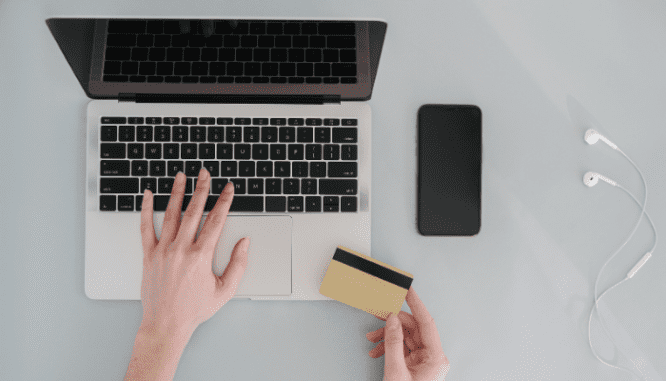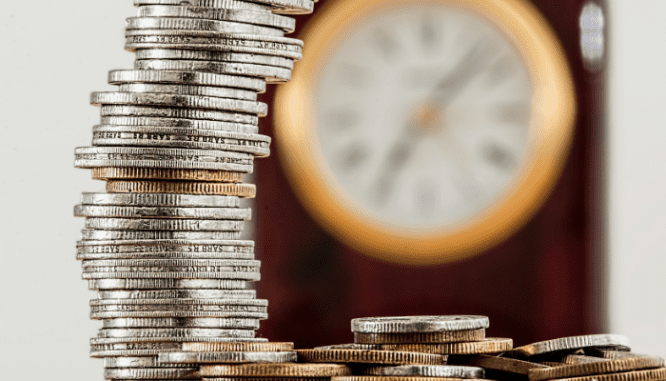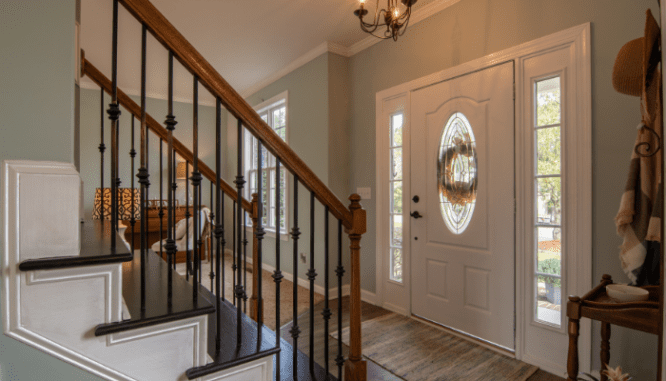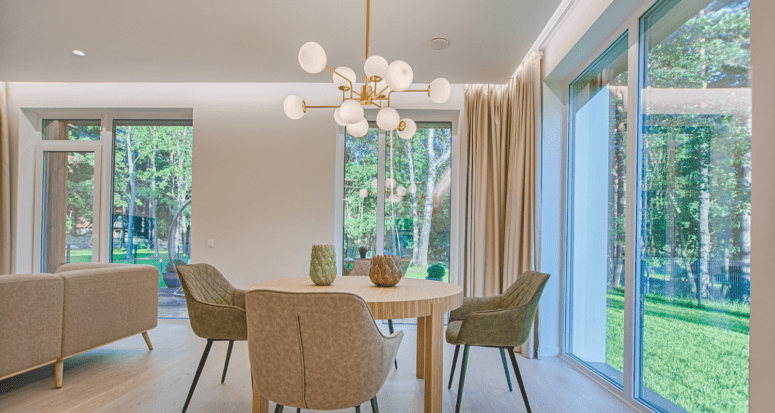Can You Buy a House With No Credit Score? Yes. Should You? Maybe.
- Published on
- 6 min read
-
 Alesandra Dubin Contributing AuthorClose
Alesandra Dubin Contributing AuthorClose Alesandra Dubin Contributing Author
Alesandra Dubin Contributing AuthorAlesandra Dubin is a lifestyle journalist and content marketing writer based in Los Angeles. Her vertical specialties include real estate; travel; health and wellness; meetings and events; and parenting. Her work has appeared in Business Insider, Good Housekeeping, TODAY, E!, Parents, and countless other outlets. She holds a master's degree in journalism from NYU.
So, you find yourself in the market to purchase a home — but you have no credit. Maybe you’re a young, first-time buyer who hasn’t had enough time yet to establish yourself with a credit history — but can’t wait to get started. Or, maybe you do have a credit history — but you haven’t made any recent purchases on credit, so there’s not enough current data to generate a score for you. Do you know how to buy a house with no credit score? Is it possible?
“It doesn’t necessarily mean you have bad credit if you have no credit,” explains Mike Acquisto, a top-selling agent in Texas.
“Maybe it’s a tech worker from overseas coming in with a visa, ready to establish credit with 40% down, who’s willing to accept a higher interest rate for the short term to get it done.”
Whatever your specific reason for having no credit, you want to know if it’s even possible to purchase that new house. Beyond that, you — rightly — want to consider whether you even should go forward with such a significant purchase, given the opportunity. You’ll have to overcome hurdles if you’re looking to buy a house in this nontraditional scenario, but it is possible.
While only you can decide whether or not going through with a home purchase is right for you, this expert-backed guide will arm you with intel about your options and the issues you should consider before you commit.

What is a credit score?
A credit score is a number calculated by a credit bureau, based on your credit history — that is, your history of repayment on the debts you have previously incurred. Lenders use this score to evaluate how likely you are to repay your mortgage loan or other debts.
Five data points make up a person’s credit score. These are:
- Your payment history (35% of the total score)
- The total amount you owe (30%)
- The length of your credit history, or the age of your accounts (15%)
- Your types of credit accounts (10%)
- New credit (10%)
Why mortgage lenders like to see your credit score
A higher score means you’re more likely to repay your loan, and therefore it is less likely that you will default and the lender will be stuck holding the bag. As a buyer, a strong credit score can also benefit you in the form of a lower mortgage rate.
What credit score do you need to buy a home?
Credit scores range from 300 on the low end to 850 on the high end.
- If your credit score is 300 to 499, you are not likely to qualify for a mortgage loan.
- With a minimum credit score of 500, you can qualify for a Federal Housing Administration (FHA) loan with 10% down.
- With a credit score of 620, you start to qualify for conventional loans, which are not backed by the government.
- With this credit score, you’re also in the range of a Veterans Affairs (VA) loan.
- If your credit score is at least 640, you are eligible for a United States Department of Agriculture (USDA) loan.
- If your credit score is at least 700, you can qualify for “jumbo” loans, mortgages for higher home values.
- And with a credit score of 740 or higher, you’ll qualify for conventional loans, which typically have some of the best interest rates available on the market.
Note that scores noted above aren’t technically minimum scores, as you can get many of these loans without having a credit score. But they’re the minimums for those who do have scores.

Low credit vs. no credit
To be clear, having low credit and having no credit are not the same things — and lenders don’t look at them the same way. Here’s more about why.
Low credit
Typically, having low credit means you’ve missed payments, defaulted on loans, or have other blemishes in your credit history — and lenders see this as risky.
No credit
No credit could mean a lot of things, but generally it means you haven’t taken on debt — or haven’t done so lately. Hence, there’s not enough reported data to generate a credit score for you.
Why a buyer might have no credit score:
- The buyer is young (previously financially dependent), and hasn’t had much time to take on debts yet.
- The buyer is someone from another country buying a home here, and will likely not have a U.S. credit score.
- The buyer is someone who just prefers not to take on debt, and who buys everything in cash or with a debit card.
- The buyer used to have credit — and maybe even had great credit — but hasn’t relied on it for 24 months.

Can a buyer with no credit get a mortgage?
The short answer is “yes.” The longer answer is: Yes, technically, but there’s a lot that buyers need to know.
Before they will write a mortgage, lenders will still have to verify a buyer’s credit — that is to say, their ability to make monthly payments — in other ways. You’ll need to have something provable for lenders to verify in your payment history, such as rent payments, that mitigates the risk of loaning you money. And the whole verification process can be frustrating, with a lot of paperwork.
Income verification
Of course, income verification will be part of the process, just as it is for a credit mortgage. In order to verify your income, your lender will request documents, such as recent paystubs, your most recent W-2, and documentation around any additional income or expenses. The bank will seek the last two years of your federal tax returns from the IRS.
Payment history
Those who go for a no-credit mortgage will have to meticulously document their payment history.
“They could use nontraditional methods, such as paying a city bill that doesn’t automatically report — something like a water or utility bill — and get verification that way,” Acquisto explains.
Payments useful for verification include:
- Rent payments (renting from family doesn’t count)
- Utility bills
- Cell phone bill
- Cable bill
- Car insurance
- Any other insurance policies you have
- Any other monthly payments you’ve made for the last 12 months
Non-traditional credit report (‘Anthem Report’)
Even if you don’t have traditional credit, a lender can verify your ability to pay through an “anthem report,” which is like an alternative credit report.
This report analyzes available credit bureau data, and supplements it with nontraditional credit data, such as your rent payments, phone bills, and utility bills.
No credit? Here are your loan options
If you’re a buyer with no credit, here’s what you really want to know: What loan options are available for buyers with no credit?
The good news is most loan options could be available, but there are some additional hoops to jump through. Here’s what they are and how to clear them.
Conventional loan with manual underwriting
You still might be able to get a conventional mortgage with no credit, but you’ll have to go through manual underwriting, instead of the typical automatic underwriting process usually handled by a computer for more typical loan application candidates.
Since you don’t have the data the computer needs to automatically decide whether you’re qualified for a home loan, you’ll need a human to look at all your finances.
This takes more time and more legwork to get the needed documentation the lender needs.
Put more money down
Buyers with no credit typically must put at least 10% down with conventional loans, though some can go much lower with Fannie Mae HomeReady and Freddie Mac Home Possible loans; these offer a minimum down payment of 5% to borrowers with nontraditional credit history, as long as they otherwise qualify.
Consider this example: Say you want to buy a $250,000 home, but you have no credit. HomeReady can help you do it with as low as 5% down. If you qualify for this loan, you’d need to save just $12,500 to get into that home. But there’s more…
You’ll need more cash reserves
That said, buyers with no credit will likely have to show more cash reserves (up to 12 months) upfront to prove they can pay the loan for months to come.
The bank will look at all of your assets —including your brokerage and retirement accounts — to make sure you have enough to handle not just the down payment and closing costs, but also to evaluate whether your financial picture supports continuing to make those monthly payments
You’ll likely pay more for mortgage insurance
Mortgage insurance (MI) is meant to protect the lender if a borrower stops making mortgage payments. If the lender must foreclose on the borrower, it will sell the property at auction, but the sale might not bring enough to cover the balance on the mortgage; MI helps make up the difference.
MI is usually required when you get a conventional mortgage and put less than 20% down. Borrowers typically have the right to cancel MI once they reach a mortgage balance of 80% of the original home value (there is an exception baked into FHA loans when buyers put down less than 10%, in that case, the MI will remain until the borrower pays off the loan or refinances).
MI costs vary, but the typical range falls between 0.5% to 1% of the loan amount annually. With a no-credit mortgage, you’ll be treated like a buyer with the lowest possible credit score — and you’ll expect to pay more MI, since the lender will consider you a higher risk.
DTI requirements are also different
Lenders look at debt-to-income ratio (DTI), which compares how much you’re obligated to pay in debts each month versus how much money you make. To calculate your DTI, the lender will add up your monthly minimum debt payments (including things like car payments, student loans, and medical bills) and divide the total by your gross monthly income.
Mortgage lenders like to see a maximum DTI of 43% to feel confident in your ability to repay. But with a no-credit mortgage, you’ll have a lower maximum DTI than a buyer with a credit score. And that factor — along with your increased down payment, cash reserves, and the cost of mortgage insurance — could substantially affect your housing budget.
Try small lenders
For a no-credit mortgage requiring manual underwriting, it may help to seek out smaller lenders who are used to being more creative — and who tend to approach each borrower’s individual situation with a more personal touch.
Whether it’s a large or small lender, Acquisto says this process hinges on finding a bank that is willing to underwrite nontraditional credit for a qualified buyer specific to their circumstances.
FHA loans
With no credit and at least 3.5% down, you may qualify for this government-backed mortgage. While it might seem like a great option, be aware that the additional fees and mortgage insurance can add substantially to the cost of your mortgage over the long term.
VA loans
VA loans are available for veterans, active duty military, and their qualifying spouses. The VA itself doesn’t specify a minimum credit score, but the lenders who actually make these loans to borrowers will go through all the steps to verify your ability to repay with nontraditional credit.
USDA loans
Also backed by the government, USDA loans are available for borrowers in rural areas (but that definition is broader than you’d imagine). Technically, the USDA does not specify a minimum credit score.

The pros and cons of buying a home with no credit
Now that you’ve determined whether you could qualify for a mortgage with no credit, you’ll also need to consider whether you should.
On the plus side, buying a home allows you to get into the real estate game, without the need to put off the goal for years while you build credit. And once you’re in, you can start building equity.
At the same time, you’ll be building your credit for a future home purchase or refinance. And renting may simply not be an option for everyone in every scenario.
On the flip side, buying a home with no credit will require jumping through many administrative hoops, which can be frustrating, time-consuming, and downright challenging. Plus, you’ll very likely need more money upfront, more cash reserves, lower DTI, increased mortgage insurance costs to mitigate lender’s risk — and combined, that can be a really tall order.
In the end, if you buy a house with no credit, you might end up with more stress than value to you at this stage of your life. But that’s a trade-off that only you can weigh.
“Get your financial house in order, get rid of all the other expenses, go rent for a certain amount of time,” Acquisto suggests to buyers who suspect they might not be ready yet financially. If that’s the case, he says, “change your spending habits, save your money” — and come back to the house hunt when you’re ready.
Header Image Source: (Vecislavas Popa / Pexels)
